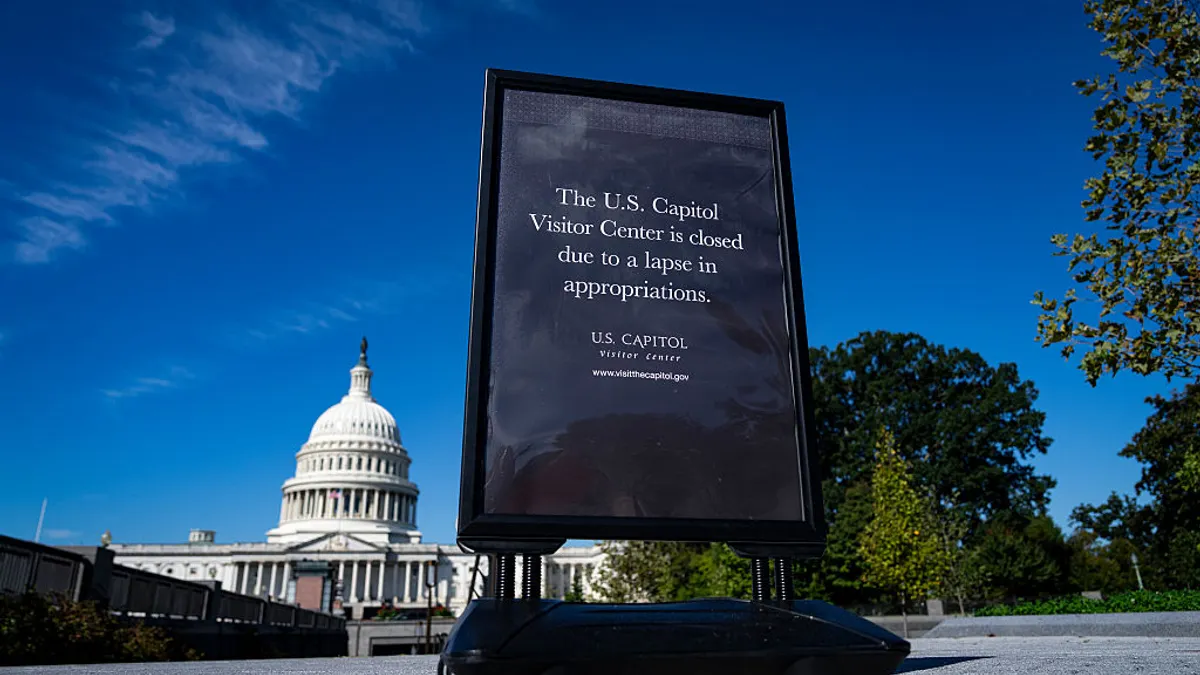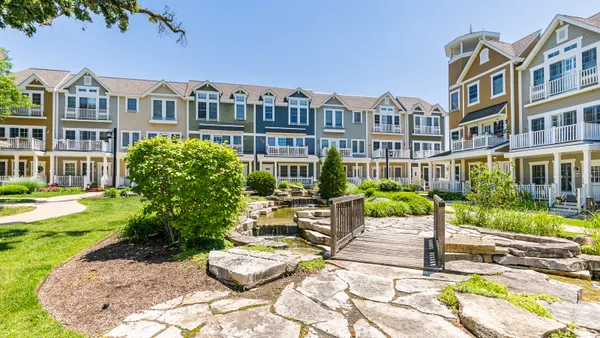Seamus Nally is the CEO of TurboTenant and a landlord of several properties in Upstate New York and Colorado. Opinions are the author’s own.
As the nation struggles through the ongoing federal government shutdown, Section 8 property owners must navigate a time of great uncertainty.
The Housing Choice Voucher program, Section 8, is funded with federal money and is run locally by public housing authorities. The regular rent subsidies, paid by the program directly to landlords, begin by paying the difference between tenant contributions (typically about 30% of family income) and market rents.

During a shutdown, previously committed federal funds will continue Section 8 payments for the short term, and funds should remain available through November for most properties. However, the longer the government remains unfunded, the greater the risk that payments will be interrupted when reserves run dry. HUD and local housing authorities have said that operations should remain steady for as long as those dollars remain, but they plan for potential interruption in case the standoff is prolonged.
Thankfully, there are measures that can be taken in uncertain times to safeguard rental income, property management and tenant relations.
Legal considerations
During a government shutdown, landlords cannot evict Section 8 tenants or seek to withhold the government rent portion from them in the event of a payment delay. Existing contracts and the federal law also mandate that tenants only make their portion payments. Any delayed governmental payments must then subsequently be reimbursed by the government after the shutdown, and landlords must also wait patiently and not penalize tenants for delayed federal payments.
Additionally, efforts to increase rents, expire vouchers or displace tenants due to closure would be illegal or in jeopardy. State-local fair housing laws remain fully effective, and discrimination against voucher holders, or potential Section 8 renters, remains prohibited, regardless of federally caused disruptions.
Under these circumstances, Section 8-invested property owners need to take some pragmatic measures to survive the shutdown:
- Regular interaction: Keep in touch with local authorities for information on funding, payment dates and emergency procedures. Additionally, consistent, transparent communication with tenants helps reassure them that their home is secure for the time being and keeps them fully informed about any changes or uncertainties they may face. Openly explaining the situation builds trust and lets tenants know that their well-being is a priority.
- Cash flow and reserve analysis: Plan for Federal payment disruptions in the short term. In case of a prolonged shutdown, you need to plan for payment of operating expenses from property reserve until you get retro payment. Refrain from making impulsive choices that would harm tenant relationships or violate laws.
- Document everything: Keep exact records of rent receipts, letters to and from HUD, and notice from the authorities. If rent is paid in arrears, note the lag and write to tenants to show that the defaulted payment was not their liability. The paper trail comes in handy in case of disputes after the shutdown.
- Continue regular operations: Routine property management such as maintenance, repairs and tenant communication shouldn’t grind to a halt. Keeping properties in good repair demonstrates professionalism and protects long-term value, particularly if inspections or compliance activities are delayed by reduced federal staffing.
- Know the rights and resources: Consult with lawyers in case of a dispute or if tenants express confusion or distress. Encourage tenants to submit their regular portion of rent and do not attempt to increase rent, terminate leases or evict tenants due to slow government payments. Such actions not only violate the law but also damage tenant trust, risk costly legal penalties and damage long-term profitability. Be aware of supplemental resources like city nonprofit housing advocates who may lend a helping hand in the shutdown.
Scenarios to watch for
The biggest potential threats are in the case that the shutdown extends beyond available funding coffers. They could include:
- Delayed subsidy payments: If HUD exhausts previously obligated funds, monthly subsidy payments will pause until funding resumes. Landlords must not seek the shortfall from tenants — patience here is key. Long shutdowns (like 2019’s 35-day lapse, which disrupted over 1,000 contracts) have seen eventual retroactive payments, though property owners had to temporarily absorb cash flow gaps.
- Expiration of contract: Section 8 Project-Based Rental Assistance contracts that were in force during the shutdown may not be renewed in time. Renters in such a situation would need to consult with contract administrators and make preparations for delay, but eviction or rent hikes in the meantime nonetheless remain prohibited.
- Lowered housing authority capacity: The local agencies remain in operation but with fewer staff for many of them, it may mean slower resolution of problems as well as delayed communications. Being proactive in checking for updates and informing tenants of these issues can help reduce frustrations all around.
Long-term strategies
Landlords who count on federally assisted housing must brace for more turbulence from Washington. That means not only building financial cushions for such events, but also advocating for more robust protection and on-time appropriations for affordable housing programs in local communities, in their own states and in Washington, D.C.
Mixing with other property owners, joining landlord organizations and staying in touch with organizations such as the National Low Income Housing Coalition can assist in helping landlords remain informed and in exerting mass pressure on policymakers.
The current government shutdown injects anxiety and practical headaches for property owners in the Section 8 program. Still, by staying informed, communicating proactively and focusing on long-term stability rather than immediate revenue gaps, smart landlords can withstand this period of limbo. Tenants and landlords alike should be reassured that past shutdowns have ultimately resulted in retroactive payments, and that statutory tenant protections remain absolute, regardless of political storms in Washington.
Under these conditions, forethought and patience become a landlord's best arsenal for protecting both community stability and property investments amid the shutdown.
Click here to sign up to receive multifamily and apartment news like this article in your inbox every weekday.









